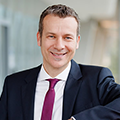
Sie sind noch kein Fidelity Kunde?
Eröffnen Sie zunächst ein FondsdepotPlus. Danach können Sie aus unseren Fonds und ETFs Ihre Favoriten wählen.
Sie sind bereits Fidelity Kunde?
Melden Sie sich in Ihrem Depot an, um Fondsanteile zu ordern oder Ihren Sparplan anzulegen oder anzupassen.
Themen & Märkte
Themen im Fokus
Veranstaltungen & Web-Seminare
Veranstaltungen & Web-Seminare
Finanzwissen für Privatanleger Web-Seminare für Professionelle Anleger
Wissen
Anlageziele bestimmen
Anlageziele bestimmen
Die eigene Lage analysieren Bestandsaufnahme Geldanlage nach Lebensphasen Mit Risiken umgehen
Portfolio ausbauen
Geldanlage mit Fonds umsetzen
Geldanlage mit Fonds umsetzen
Ein Depot managen Fonds & ETFs Vermögensverwaltung Sparplan
Werkzeuge für Anlageerfolg nutzen
Über uns
Fidelity International
Fidelity International
Unternehmen Nachhaltigkeit Presse Karriere bei Fidelity Das Fidelity Team
Professionelle Anleger
Vertriebspartner
Vertriebspartner
Übersicht Fonds Im Fokus Web-Seminare Fondspreise & Wertentwicklung My Fidelity
Institutionelle Anleger
Institutionelle Anleger
Übersicht Anlagestrategien Anlagethemen Insurance Solutions Klimawandel und Biodiversität
Betriebliche Vorsorge
Betriebliche Vorsorge
Übersicht bAV News FondsPensionsplan Zeitwertkonten Kapitalanlage Insolvenzsicherung Globale Vorsorgestudien
Themen & Lösungen
Home Fidelity Articles Fachthemen im Fokus
Trade Offs | Bank of America: Financing the transition
Fidelity - Fidelity International
PRO 24. Januar 2023
Inhalte für professionelle Anleger
Wichtiger Hinweis
Fidelity unterstützt nicht nur Privatanleger, sondern auch professionelle Anleger mit einem breiten Informationsangebot zu den Themen Investment Management, Produkte und Marktinformationen. Fidelity möchte allen Besuchern maßgeschneiderte Informationen zur Verfügung stellen.
Bestätigen Sie daher bitte, ob Sie ein professioneller Anleger oder ein Privatanleger sind. Außerdem bestätigen Sie bitte, dass Sie als professioneller Anleger ggf. auch Informationen in englischer Sprache erhalten können.
Als Privatanleger werden sie auf die vorherige Seite oder die Homepage weitergeleitet.
Fidelity übernimmt keine Haftung für Schäden, die aus der unberechtigten oder fehlerhaften Nutzung von Inhalten entstehen.
Inhalte für professionelle Anleger
Wichtiger Hinweis
Diese Inhalte sind ausschließlich für professionelle Anleger bestimmt.
Sie sind professioneller Anleger? Ändern Sie den Status "Privatanleger" in der Navigation.
Wenn Sie kein professioneller Anleger sind, können Sie auf die vorherige Seite zurückkehren oder unsere Homepage aufrufen, um Ihren Besuch auf unserer Website fortzusetzen.

In this episode of ‚Trade Offs‘, Bank of America chief executive Brian Moynihan explains how he navigates the complex world of sustainable finance and the trade off he believes is essential when it comes to the energy transition.
The Interview
As chief executive of one of the world's largest financial institutions for more than a decade Brian Moynihan has led Bank of America through some tumultuous times. The shift from shareholder to stakeholder capitalism - accelerated by the Great Financial Crisis, heightening environmental challenges, and a global pandemic - has demanded careful stewardship, and all against a backdrop of increasing political upheaval.
He talks to Fidelity International's Global Head of Investment Research Ned Salter about how he balances the needs of all stakeholders and the trade offs he faces in guiding Bank of America and the companies it works with on a credible path to sustainability.


